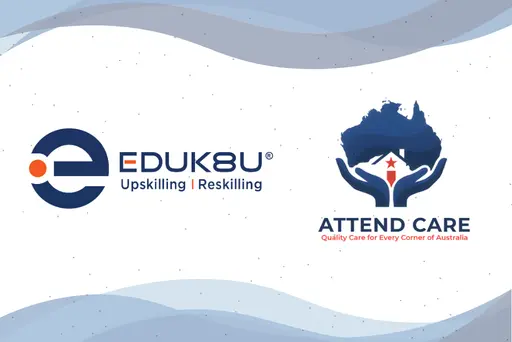Human resources is often described as the backbone of any organisation, but many professionals feel daunted when it comes to applying HR theory in the real world. At EDUK8U® Grad School Asia, we believe that effective HR isn’t just about policies or paperwork it’s about practical skills that make a tangible difference to both people and business outcomes.
Having worked with numerous HR practitioners over the years, I’ve noticed a recurring pattern: there’s a gap between what people learn in classrooms and what they can immediately apply in the workplace. That gap can be frustrating, particularly when you want to see real impact from your work. Fortunately, there are several skills you can start using straight away to enhance your effectiveness, build trust with your teams, and improve organisational performance.
1. Communication and Active Listening
It may sound obvious, but clear communication is the cornerstone of HR. Whether conducting interviews, handling grievances, or facilitating team meetings, the ability to listen actively and communicate with empathy can transform relationships and prevent misunderstandings. I often remind my students that HR is as much about emotional intelligence as it is about technical knowledge. Asking the right questions and truly listening to the answers can reveal insights that drive better decision-making.
2. Effective Recruitment and Onboarding
Finding the right people is critical, yet many organisations struggle with inefficient recruitment processes. Practical HR skills here include crafting clear job descriptions, conducting structured interviews, and creating a welcoming onboarding experience. A smooth onboarding not only sets new employees up for success but also reduces turnover and improves engagement from day one.
3. Performance Management
Another area where immediate impact is possible is performance management. Simple, practical actions—such as setting SMART goals, providing constructive feedback, and recognising achievements can boost morale and productivity. I often encourage my students to schedule regular one-on-one check-ins with team members; these brief but meaningful conversations foster accountability and trust.
4. Conflict Resolution
Conflict is inevitable in any workplace, but it doesn’t have to derail productivity. Learning how to mediate disputes, encourage open dialogue, and implement fair solutions is an HR skill that pays dividends quickly. I’ve seen even small interventions, such as clarifying expectations or facilitating communication between colleagues, make a remarkable difference in team dynamics.
5. Data-Driven Decision Making
Finally, understanding and using HR metrics can transform how you influence the organisation. From turnover rates to employee engagement scores, data allows you to identify trends, measure success, and make informed recommendations. Even a basic grasp of HR analytics can help you make decisions that are both practical and strategic.
HR isn’t about waiting for the perfect moment to implement change. It’s about taking the skills you already have and applying them thoughtfully every day. By focusing on communication, recruitment, performance management, conflict resolution, and data-driven insights, you can make an immediate impact.
At EDUK8U® Grad School Asia, we focus on equipping HR professionals with these actionable skills so that they leave our programmes ready to lead, inspire, and make a difference from day one. Because practical knowledge applied effectively is what turns HR from a function into a force.








